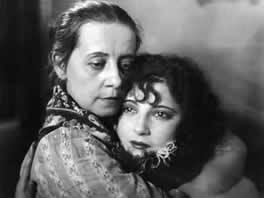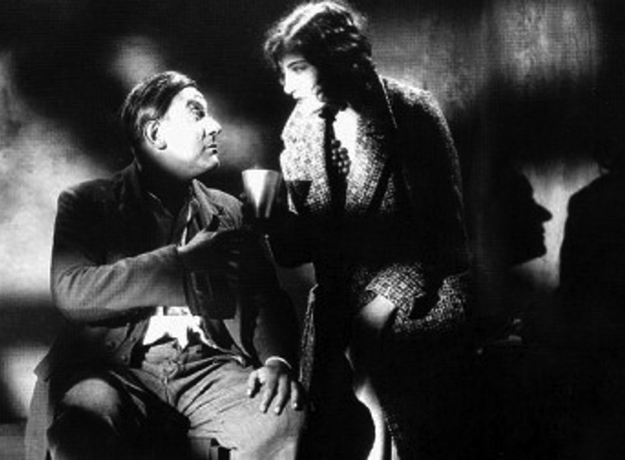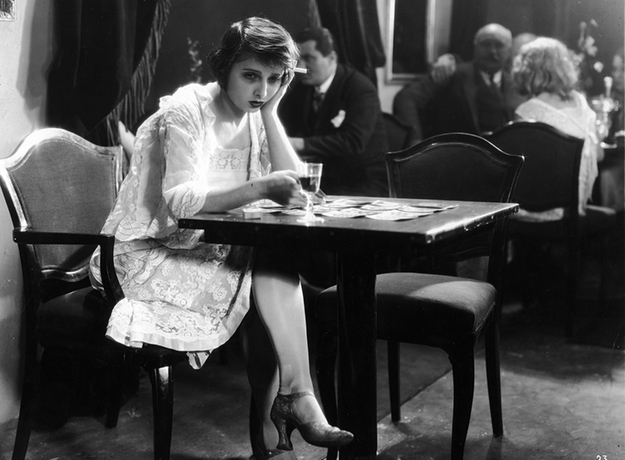
 I don’t like to say a film has been ‘rediscovered,’ it always makes me wonder who found the film in the first place and then who lost it. So let’s just say the Czech Archive has just unearthed a treasure of a film. The name of this treasure is Tonka Šibernice, or in English, Tonka of the Gallows.
I don’t like to say a film has been ‘rediscovered,’ it always makes me wonder who found the film in the first place and then who lost it. So let’s just say the Czech Archive has just unearthed a treasure of a film. The name of this treasure is Tonka Šibernice, or in English, Tonka of the Gallows.
Directed by Karl Anton, and released in 1930, the film is technically a sync sound film with two songs which are lip synched – the rest of the film is played ‘silent’ with intertitle cards, but with a music score, ala Don Juan. So less pedantically, this is a silent film with two short songs lip synched, which do not damage the silent film aesthetic. If you agree Modern Times is a silent film, and a wonderful one at that, so is this.
In the beginning of the film we see city girl Tonka (played by an amazing Ita Rina) traveling by train back to her childhood home in the country, and the contrasts between city and country life are clearly marked, making comparisons between this film and Sunrise inevitable (more on this later). Soon though, Tonka returns to the city and when we learn she has been able to earn a living only by being a prostitute, the film starts to become darker and more complex.
Things get very dark indeed for Tonka, when – from an act of pity – she volunteers to spend a night with a condemned man in his jail cell before his execution the next morning. Although her night with the man is one spent in chaste innocence, as she allows him to relive his happy days as a child, to the rest of the world she is a now a ‘hanged man’s widow’ – a pariah to be shunned and avoided. Tonka has become a ‘fallen angel,’ cursed by her act of kindness, an act which threatens any chance she has of happiness.

All the acting in this film is superb, but especially wonderful is Ita Rina as Tonka, who is completely convincing as the woman who no matter how hard she tries, can never shake off or destroy the pure and tender heart that is deep inside of her. She gives one of the greatest silent film performances I have ever seen; if you need just one reason to seek out this film, it is to watch her in this part.
But there are many other reasons to see this film. The art direction and production design shifts effortlessly from naturalism to expressionism, letting the emotion and purpose of the scene dictate what is presented rather than with any preset conditions. Yet there a powerful underlying visual design to this film, as the story moves from the country to the city, we leave the soft-shadowed dappled freedom of the urban countryside to the angular harshness of the city. As this happens, the characters in this film begin to be trapped or cornered in some way – some by social convention, others by prison walls, but mostly, the characters are trapped by jagged lines, jiggles, and figures of darkness that spring up and surround them, cutting them off from escape and freedom, sometimes even prophetically displaying themselves on the walls and on their faces, like the dark hand of fate, symbolically forecasting their futures. By the end of the story, this movie has become a nightmarish wonderland of shadows.

And finally, in a thematic way, these shadows of confusion and concealment extend into the narrative itself – as a bruised and beaten Tonka sings for her supper to a crowd in the bar – they yell that all they want is to hear about her night of passion with the hanged man. The crowd care nothing about what really happened, and they don’t care about her, they just care about what they already believe. The myth has become fact and Tonka must live in the myth or die. It’s a cruel lesson to learn, and a lesson that seems more timely than ever.
As I said earlier, comparisons of this film with Sunrise are inevitable, I was going to make a case it’s an even better film, but such horse-race comparisons are in the end, silly. Instead I’ll just say that Tonka of the Gallows stands with Sunrise as one of the greatest of all late silents, highlighted by Ita Rina’s standout performance as Tonka, a fallen angel cursed by her own irredeemable goodness.


